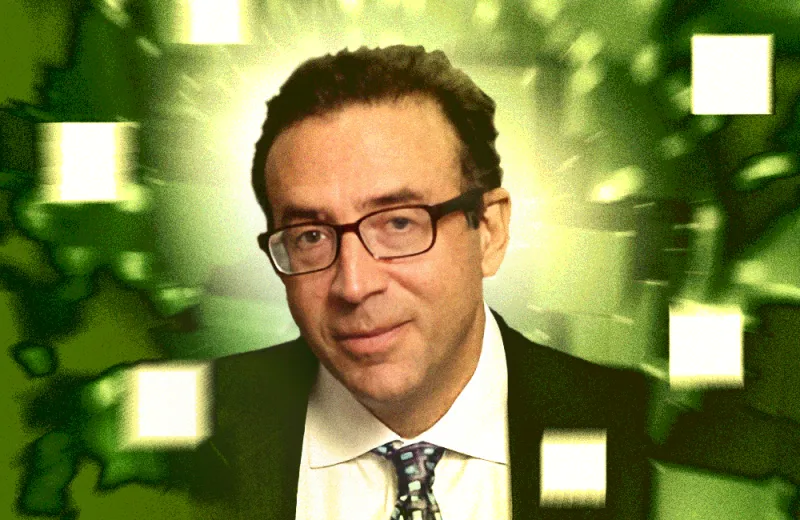Ever since the collapse of Sam Bankman Fried’s FTX exchange, the crypto industry and its supporters have been blaming Washington’s inability to regulate crypto, using the term “lack of regulatory clarity” as their rallying cry.
These criticisms — largely levied at Securities and Exchange Commission Chair Gary Gensler — are “hypocritical nonsense,” according to J.P. Morgan Asset Management’s Michael Cembalest. “Just ignore them,” he said in his latest “Eye on the Market” report.
Cembalest’s skepticism of crypto predates the current crisis, as Institutional Investor reported on earlier this year. His latest critique of the industry lays out some of the history around the SEC’s efforts to rein in crypto, as well as the pressure the regulator faced from moneyed interests and their allies in Washington.
As Cembalest notes in his new commentary, the crypto industry “litigated against retailer and exchange reporting requirements in the 2021 Infrastructure Act that are designed to prevent fraud, and both the Blockchain Association and the Association for Digital Asset Markets complained about SEC efforts to put crypto exchanges under its purview in January 2022.”
In general, Cembalest said, securities laws are “rarely prescriptive” and instead are “part of a principles-based regulatory framework designed to be flexible enough to apply to new instruments as they’re created.”
“Existing rules give the SEC jurisdiction over onshore and offshore crypto intermediary platforms (exchanges and broker-dealers) to prevent fraud, manipulation, front-running, wash sales, and other misconduct,” Cembalest wrote, explaining that such jurisdiction requires “an SEC determination that the intermediary is trafficking in ‘securities.’”
And when it comes to crypto, he explained, “securities” is “a loaded phrase.”
Whether or not crypto tokens are securities has been the crux of much of the debate over regulating the industry. When the SEC has gone after crypto without specific Congressional authorization, Cembalest said “the SEC is acting pursuant to a decades-old Howey test definition of a security (which has been upheld by Federal Courts so far, most recently in SEC vs LBRY), and almost always over the objections of the crypto industry, politicians in both parties, influential venture capital firms and people within the SEC itself (including SEC Commissioner [Hester] Peirce, known as ‘Crypto-Mom’ based on her support for the industry).”
Therefore, Cembalest argued, if people want to criticize Gensler and others at the SEC for the failure of FTX, they must follow what he labeled “The Gensler Rule.”
“The Gensler Rule works as follows: you may only criticize Commissioner Gensler and the rest of the SEC for the FTX failure if you meet all of the following criteria,” the JPMAM strategist wrote. “No exceptions.”
First, he said, critics must “have stated that many cryptocurrencies (although not Bitcoin) qualify as securities and not commodities, and that the SEC should make this judgment based on the existing test unless Congress legislates a new one.”
The second criteria, according to Cembalest: “You have stated that the SEC should have responsibility for regulating onshore and offshore crypto exchanges dealing with U.S. customers when ‘securities’ are involved. SEC and CFTC jurisdiction over offshore platforms requires a nexus with U.S. individuals. This is often not difficult to establish: It’s an open secret that U.S. crypto investors frequently evade jurisdictional requirements; roughly 60 percent of all U.S. crypto derivative trades were reportedly executed at the offshore unit of FTX.com.”
Thirdly, a critic must “support the many speeches by Gensler and SEC predecessor Clayton on crypto risks, and support the SEC’s 100-plus crypto enforcement actions to-date (Grayscale, Telegram, Kik, BlockFi, BitTorrent, Coinbase, LBRY, etc.), and support Clayton’s 2018 stinging rebuke to a group of attorneys who worked on initial coin offerings.”
Cembalest also took aim at members of Congress who’ve called out the SEC after receiving money from the crypto industry.
Cembalest said that critics of Gensler can’t be “one of the Senators or Representatives that receive campaign contributions from Coinbase, Digital Currency Group, Ripple, Andreesen Horowitz, Blockchain Capital and other firms that generally argue against SEC jurisdiction [or] one of the eight House members that wrote directly to Gensler at the SEC in March of 2022 stating that SEC information gathering from FTX and other crypto exchanges was ‘burdensome,’ ‘stifling innovation’ and that it might violate federal law.”
Cembalest also pointed out that crypto investors don’t go to offshore exchanges “because there isn’t enough regulatory clarity onshore.” Instead, he said, “They transact offshore since that’s where the crypto industry offers the highest margin lending, the widest selection of tokens, and the widest array of derivative products (i.e., crypto free-for-all).”
So another requirement of The Gensler Rule is that critics “acknowledge that Binance, Bitfinex, Huobi, Deribit, etc. domicile outside the U.S. because of more stringent U.S. rules.”
In a final riposte, Cembalest added that critics of the SEC and Gensler must not “own any books, articles or pamphlets by Ayn Rand.” Rand, a favorite writer of Libertarians, opposed government regulation of industry.







